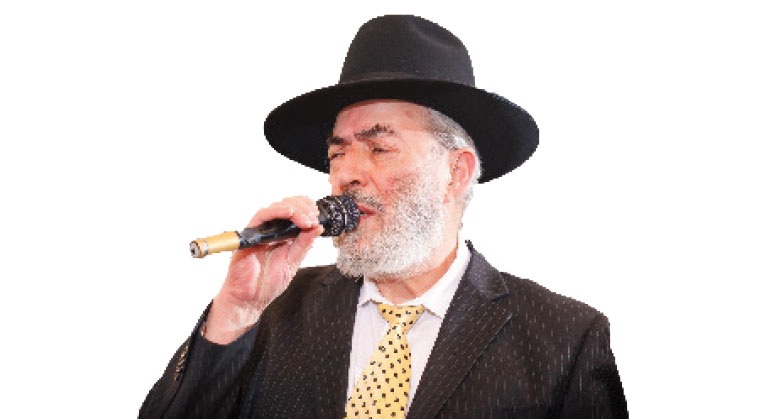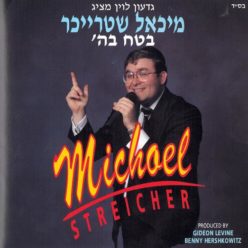The Story Behind the Song
"M
y father never really understood why his composition ‘Raza D’Shabbos’ — on Michoel Streicher’s1991 Don’t Give Up album — was less popular than the classic ‘Ein Aroch,’ which Michoel released the following year on Thank You, even though ‘Raza D’Shabbos’ was more musically sophisticated,” says Meir Hershkowitz, son of composer Reb Binyomin Hershkowitz a”h, who passed away at age 69 in December 2015.
Reb Binyomin himself preferred “Raza D’Shabbos,” which was originally written as a chuppah niggun for the marriage of a close relative, before he added the mystical words from the Friday night “Kegavna” tefillah. “My father was a real Shabbos Yid,” Meir says, “So it’s no wonder that he was drawn to these words. One of his favorite shtiklach of chazzanus was Chazzan Pierre Pinchik’s renowned ‘Raza D’Shabbos.’ So that was also an influence.”
In fact, Reb Binyomin Hershkowitz had a rule that is worth repeating for the benefit of would-be composers: If you can’t sing a song at the Shabbos table, it’s not a Yiddishe niggun.
Reb Binyomin’s parents left Hungary for Eretz Yisrael right before World War II, where his father, an artist, created artistic wood carvings for shul furniture in Jerusalem and atzei chaim for sifrei Torah. That business is still in the family today. Having settled in the Batei Ungarin section of Meah Shearim, they were one of the first families in the neighborhood to have a phonograph. By the time Binyomin was born, music was part of the background noise.
Reb Binyomin originally began to compose without any commercial intent. “My father would sit and play on his keyboard for hours undisturbed, usually at night after his shiur. I would often sit there listening to him, and I noticed how attached he was to the music, and how it came from his soul,” Reb Meir remembers. “One of those songs was ‘Raza D’Shabbos,’ in which my father’s deep emotions were carried into the higher notes. My father himself had a very wide singing range, so he didn’t find it difficult to sing, but I believe the song didn’t reach its full potential at first, because when people sang it, not everyone could reach those high notes. One arranger who worked with my father once said as a joke that he would bang a board over the high notes of my father’s keyboard because they were so unreachable.”
Still, people loved listening to the song, even if they couldn’t sing it perfectly.
Around ten years later, Reb Binyomin changed the high part when he and his friend, Yiddish singer and lyricist Reb Yonoson Schwarz, sang it together at the Friday night tish of Rav Moshe Wolfson at Emunas Yisrael in Boro Park. In 2004, Reb Binyomin put out his own release, Hamenagen, where the new version was sung by Shlomo Simcha.
“But the feedback we got was that the song was a lot more powerful in its original format,” says Reb Meir. Later, Benny Friedman and Shloime Daskal both recorded it in the stronger original version, appropriate for their gifted, wide-ranging voices. The song also plays in the final Shabbos siren in some areas in Eretz Yisrael. (Originally featured in Mishpacha, Issue 722)



